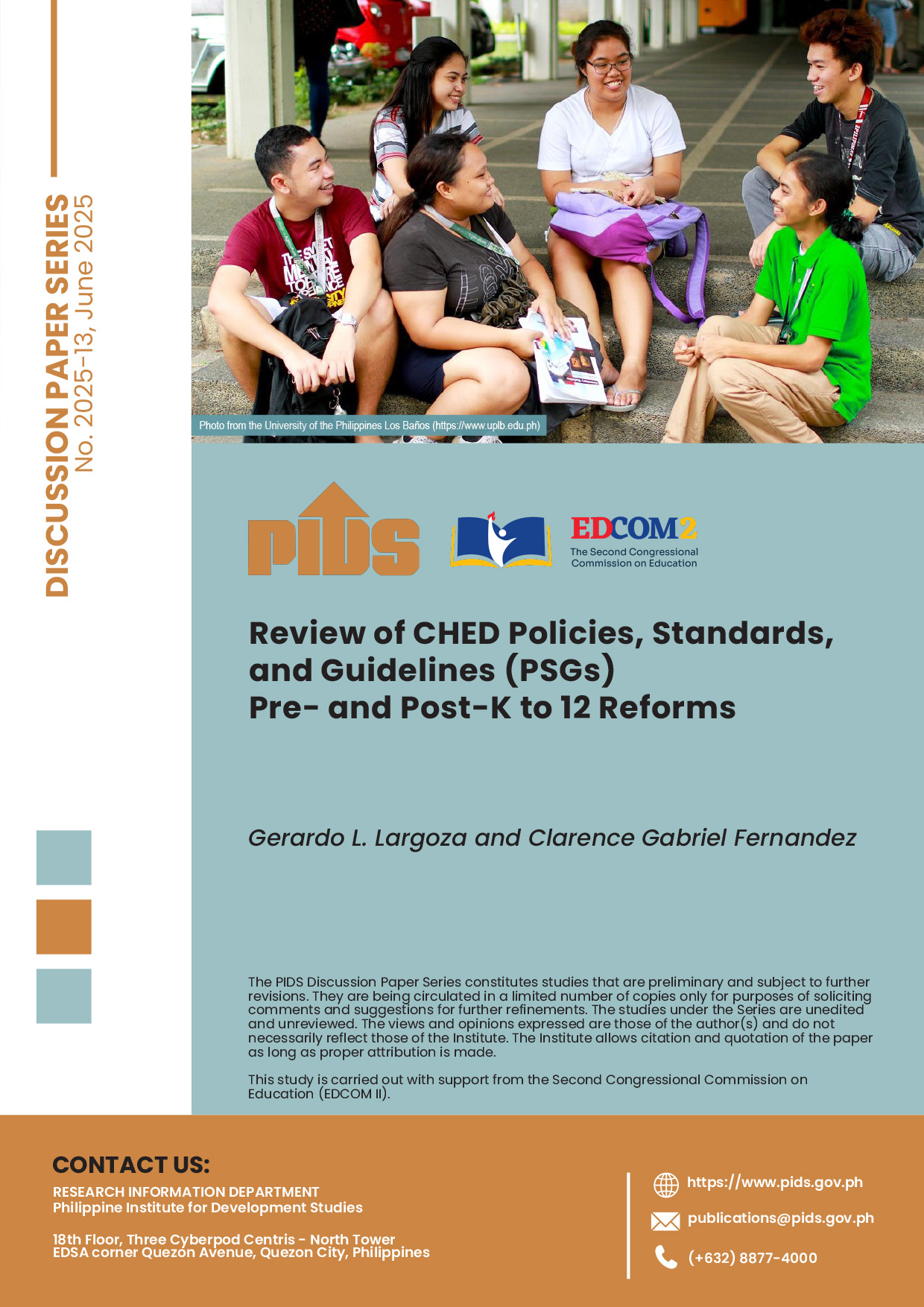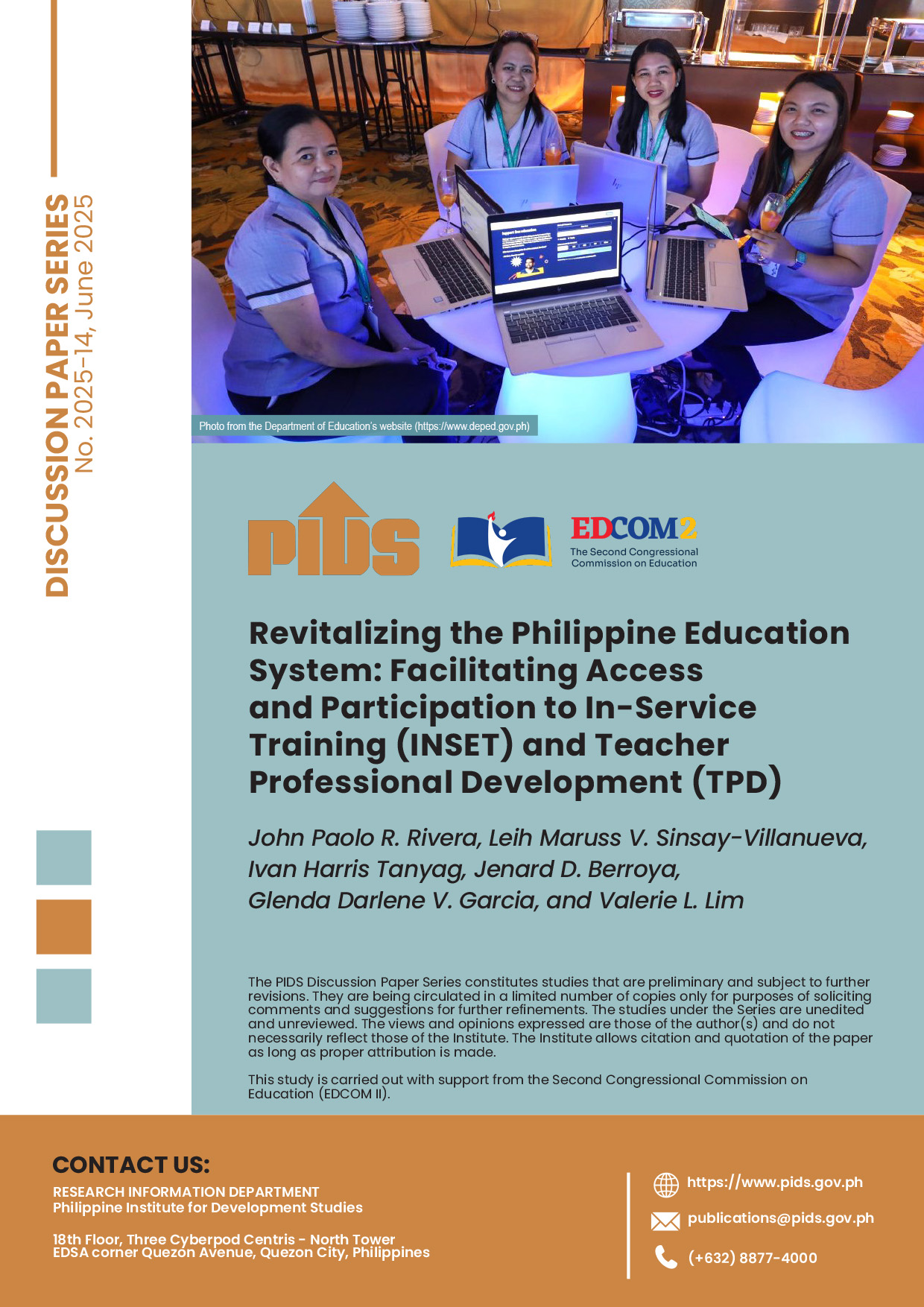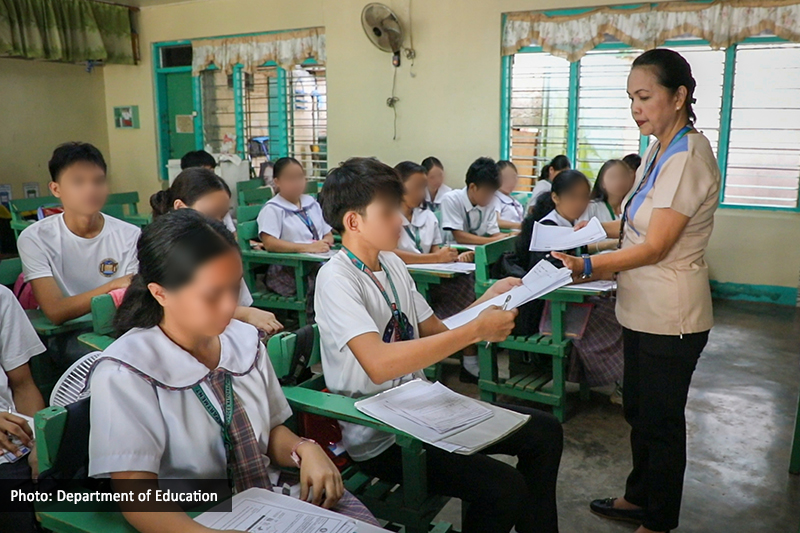
The road to inclusive growth can start with education. Human resource is the backbone of the economy, and a well-trained, highly competitive workforce is key to increased productivity and national competitiveness. Education can promote inclusive growth but can also be a purveyor of inequity if left unguided.
Research by PIDS is helping inform policy by showing how education can help break the cycle of intergenerational poverty. For instance, PIDS has found that the government's conditional cash transfer program - the Pantawid Pamilyang Pilipino - has been successful in improving school attendance among poor households. An alternative pathway to tertiary education - technical and vocational skills training=is being offered by the Technical Education and Skills Development Authority (TESDA). Scholarships such as those managed by TESDA and the Commission on Higher Education (CHED) have shown internal efficiency based on graduation rates. Gaps and inefficiencies remain, however. For instance, a significant portion of elementary schoolchildren do not finish Grade 6, in general, and more so among the poor, in particular. In the case of tertiary education graduates, the passing rates in professional board examinations remain low and employability is still a major issue. The operating efficiency of state universities and colleges can be substantially improved. In addition, their current record of reaching poorer tertiary education students has been found to be not significantly different from the private higher education institutions. The government has to do a better job in rationalizing the burgeoning number of higher education institutions and encourage those that remain to aim for higher quality. A well-designed and expanded student financial assistance program that gives students the capacity and freedom to choose what course and school to take can improve the efficiency and equity of the tertiary education system.
Know more what PIDS studies have to say about the issues confronting the education sector. Understand the challenges that need to be addressed as the Philippines works to achieve universal primary education by 2015 under the Millennium Development Goals and as it embarks on the Enhanced K to 12 Basic Education Program and reform the higher education system.
Economic Policy Monitor 2012: Regional Economic Integration and Inclusive Growth - Engaging Nations, Embracing People
Economic Policy Monitor 2011: Education for Development
Schooling Disparities: An Early Life Lever for Better (or Worse) Equity in the Future
Efficiency of State Universities and Colleges in the Philippines: a Data Envelopment Analysis
Benefit Incidence of Public Spending on Education in the Philippines
Mobilizing LGU Support for Basic Education: Focus on the Special Education Fund
An Assessment of TESDA Scholarship Programs
Promoting Inclusive Growth through the 4Ps
Pantawid Pamilyang Pilipino Program and School Attendance: Early Indications of Success
Enhanced K to 12 Basic Education Program: Opportunities and Challenges
Education, Labor Market and Development: A Review of the Trends and Issues in the Philippines for the Past 25 Years
Research by PIDS is helping inform policy by showing how education can help break the cycle of intergenerational poverty. For instance, PIDS has found that the government's conditional cash transfer program - the Pantawid Pamilyang Pilipino - has been successful in improving school attendance among poor households. An alternative pathway to tertiary education - technical and vocational skills training=is being offered by the Technical Education and Skills Development Authority (TESDA). Scholarships such as those managed by TESDA and the Commission on Higher Education (CHED) have shown internal efficiency based on graduation rates. Gaps and inefficiencies remain, however. For instance, a significant portion of elementary schoolchildren do not finish Grade 6, in general, and more so among the poor, in particular. In the case of tertiary education graduates, the passing rates in professional board examinations remain low and employability is still a major issue. The operating efficiency of state universities and colleges can be substantially improved. In addition, their current record of reaching poorer tertiary education students has been found to be not significantly different from the private higher education institutions. The government has to do a better job in rationalizing the burgeoning number of higher education institutions and encourage those that remain to aim for higher quality. A well-designed and expanded student financial assistance program that gives students the capacity and freedom to choose what course and school to take can improve the efficiency and equity of the tertiary education system.
Know more what PIDS studies have to say about the issues confronting the education sector. Understand the challenges that need to be addressed as the Philippines works to achieve universal primary education by 2015 under the Millennium Development Goals and as it embarks on the Enhanced K to 12 Basic Education Program and reform the higher education system.
Economic Policy Monitor 2012: Regional Economic Integration and Inclusive Growth - Engaging Nations, Embracing People
Economic Policy Monitor 2011: Education for Development
Schooling Disparities: An Early Life Lever for Better (or Worse) Equity in the Future
Efficiency of State Universities and Colleges in the Philippines: a Data Envelopment Analysis
Benefit Incidence of Public Spending on Education in the Philippines
Mobilizing LGU Support for Basic Education: Focus on the Special Education Fund
An Assessment of TESDA Scholarship Programs
Promoting Inclusive Growth through the 4Ps
Pantawid Pamilyang Pilipino Program and School Attendance: Early Indications of Success
Enhanced K to 12 Basic Education Program: Opportunities and Challenges
Education, Labor Market and Development: A Review of the Trends and Issues in the Philippines for the Past 25 Years












